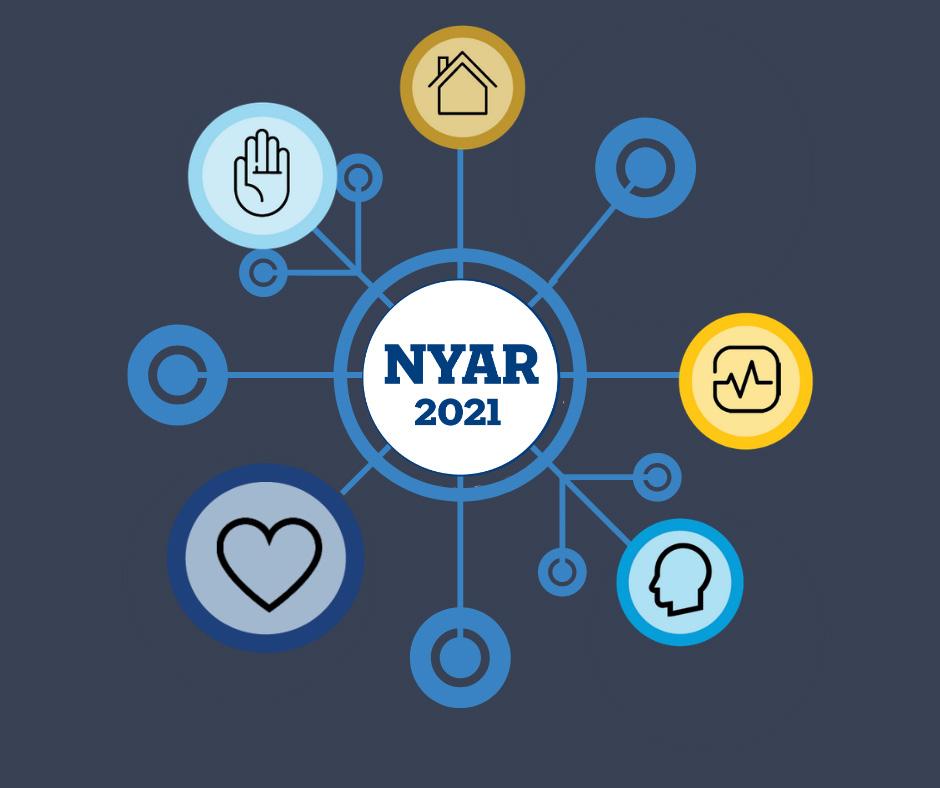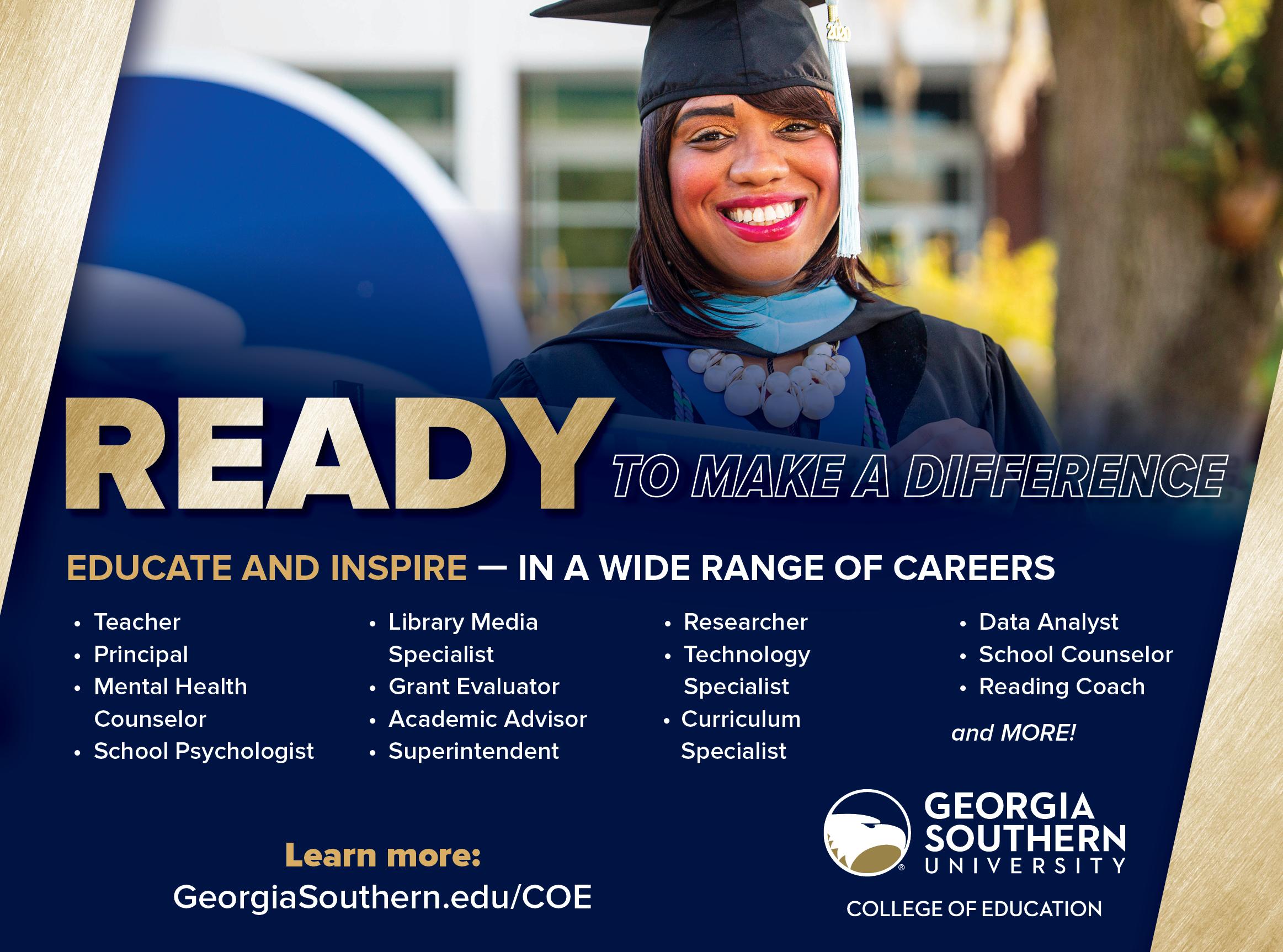
5 minute read
Session Three
Challenging Conversations About Race
Douglas Reeves, PhD, Creative Leadership Solutions, Boston, MA Kenneth Williams, MS, Unfold the Soul, Inc, Sharpsburg, GA Talking about race is challenging. Research suggests that many educators and leaders either avoid the topic because they think it is “too political” or “too dangerous,” or they address issues of race in a simplistic manner. This presentation’s approach involves scenarios appropriate for K-12 students, faculty, community members, and parents. The presenters do not provide easy answers, but rather know that without challenging conversations, progress is impossible. This interactive presentation will engage every audience member with ideas, challenges, and success stories.
12:40 - 2:00 p.m. Break for Lunch
2:00 - 3:00 p.m. Session 3 Breakouts
Intent vs. Impact: Acknowledging the Past to Build Trust with Black Youth We Serve for the Future
Phylicia Anderson, LCSW, Black Girl Flo, Inc., Savannah, GA According to Harvard University’s Center on the Developing Child, “Every child who winds up doing well has had at least one stable and committed relationship with a supportive adult.” Unfortunately for Black children there are many barriers that prevent authentic, healing relationships to develop with adults who are supposed to help them. During this session, the presenter will explore the historical context and current barriers that affect Black children. Lastly, participants will learn strategies on how to overcome those barriers to best serve Black children therapeutically.
Mental Health Awareness Panel
Panelists: Vira Salzburn, MSM, CAPM, MSC TT, Chatham County Safety Net Planning Council, Inc., Savannah, GA Richard Cleveland, PhD, LPC, NCC, ACS, Georgia Southern University, Statesboro, GA Jennifer Perry, PhD, NCC, Georgia Southern University, Statesboro, GA This panel will examine childhood and adolescent mental health. With suicide rates increasing and anxiety/ depression diagnoses escalating, these panelists will share tools necessary for supporting youth’s emotional, psychological, and social well-being.
Social-Emotional Learning and Wellness 4 Wounded Students
Joe Hendershott, EdD, Hope 4 The Wounded, LLC, Columbus, OH Educators are looking to be resourced with a better understanding of the social-emotional needs of wounded children to reach them, teach them and avoid using ineffective strategies and consequences. As we navigate the various challenges in our world, it becomes even more paramount to draw upon doable, practitioner-developed strategies for keeping wounded children engaged in their educational settings to ensure academic and life success. In this session, the presenter will utilize the Hendershott Model 4 Reaching Wounded Students where they position students for hope, which makes their education relevant and promotes mental wellness.
Youth and Trauma: The Hidden Impact of Grief and Loss
Kiana Battle, PhD, LMSW, K Battle Consulting, Griffin, GA This presentation will expose the hidden impact of grief and loss, specific to youth and explore at-risk behaviors, trauma, mental health issues, issues of low self-concept , and many more. The presentation will also provide participants with best practice interventions through the lens of a trauma-informed approach for supporting youth impacted by grief and loss.
How Are You? Now, How Are You Really?
Jeff Rader, LCSW, Henry County School, McDonough, GA During the pandemic, the social work team at one high school began meeting weekly to determine the next steps in these chaotic and unsure times. They began checking in with each other on a deeper and more real level, stopping the fake and usual “How are you,” and starting to ask “How are you really”? This transformed their team from a great team of social workers to the cohesive, genuine, outstanding group they are today. During this session, the presenter will discuss the importance of connection and give examples and takeaways to help participants connect with their coworkers.
No Place For Hate
Gabrielle Brundidge, MEd, Hubert Middle School, SCCPSS, Savannah, GA No Place for Hate® is an initiative of the Anti-Defamation League offered free to schools. No Place For Hate® provides a unique framework to incorporate new and existing programs with one consistent message. No Place For Hate® can help your school foster a culture of respect and create a safe, bully-free learning environment for students at all grade levels.
Understanding the Traumatized Brain
Sam Marion, LCSW, Family Recovery of Southwest Georgia, Moultrie, GA Elizabeth Marston, LCSW, Family Recovery of Southwest Georgia, Moultrie, GA Students who have experienced trauma are often in need of behavioral intervention due to challenging behaviors and reactivity. Understanding the body’s threat response system gives insight into these behaviors and allows for empathy within the interventions. This presentation will outline basic neuroscience theories, propose interventions focused on self-regulation, and demonstrate how adding basic elements to existing interventions can increase efficacy.
A Conversation with Colleagues: A Round Table Discussion on Working with Students Considered “At-Risk”
Reginald Carruth, MEd, LaVergne Middle School, Murfreesboro, TN This workshop will allow educators to collaborate with others and participate in an intentional extended discussion on working with students considered “at-risk” among a small group/peers. Discussions will include topics such as student engagement, creating a safe culture, managing behavior, promoting social and emotional learning, and building a positive relationship for students to excel. During the discussion, attendees will participate in layers of conversations where they can share or gain effective strategies among colleagues.
Building Rockets: Blueprints for the Thriving Classroom
Amy McDonald, MEd, Southeast Island School District, Thorne Bay, AK David Pavish, Brightways Learning, Missoula, MT Put brain-based research into practice–it’s not rocket science! You can ensure meeting academic standards while valuing relationships to launch and grow thriving classroom ecosystems. New and reimagined tools, strategies, and skills will emerge through active learning and conversation. You will get to create your own blueprint to equip you for meeting your individual and classroom goals.
4-H Tech Changemakers Project: Empowering Teens and Serving Rural Communities
Kasey Bozeman, MS, University of Georgia, Athens, GA Stephanie Skojac, BS, University of Georgia, Chatsworth, GA Allie Griner, MPH, University of Georgia, Calhoun, GA Caleb Millican, BS, University of Georgia, Ringgold, GA With over 23.4 million people lacking broadband internet access in the US, families and communities demonstrate struggles. Feeling secure and knowledgeable enough to adopt and use the technology is another challenge. Through the 4-H Tech Changemakers project, youth and adult teams taught digital literacy and safety skills to over 100 communities across America. This session will share how to implement a similar program in your community, regardless of your affiliation with 4-H programming.




